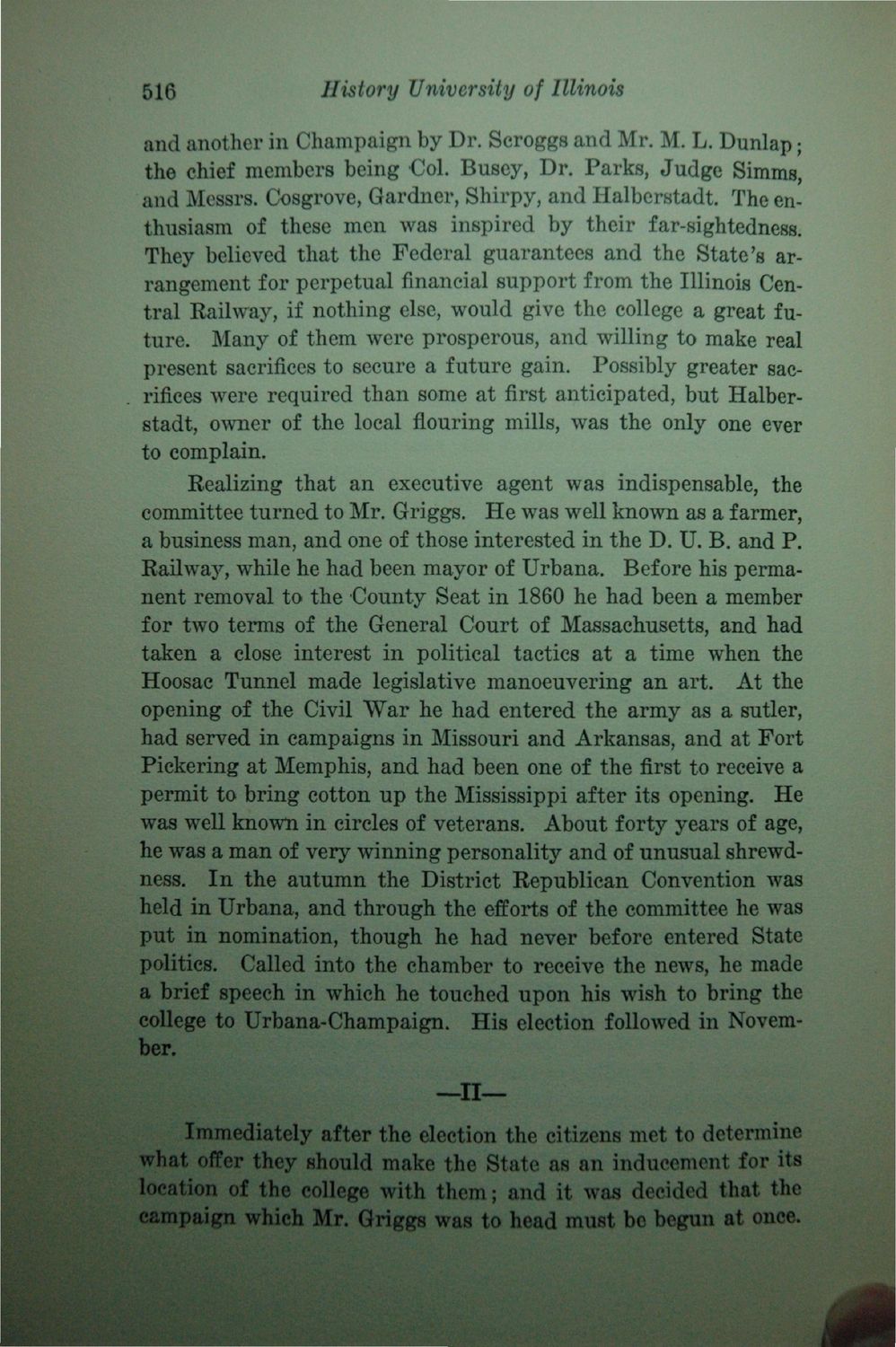| |
| |
Caption: Book - History of the University (Powell)
This is a reduced-resolution page image for fast online browsing.

EXTRACTED TEXT FROM PAGE:
516 History University of Illinois and another in Champaign by Dr. Scroggs and Mr. M. L. Dunlap; the chief members being Col. Busey, Dr. Parks, Judge Simms, and Messrs. Cosgrove, Gardner, Shirpy, and Halberstadt. The enthusiasm of these men was inspired by their far-sightedness. They believed that the Federal guarantees and the State's arrangement for perpetual financial support from the Illinois Central Railway, if nothing else, would give the college a great future. Many of them were prosperous, and willing to make real present sacrifices to secure a future gain. Possibly greater sacrifices were required than some at first anticipated, but Halberstadt, owner of the local flouring mills, was the only one ever to complain. Realizing that an executive agent was indispensable, the committee turned to Mr. Griggs. He was well known as a farmer, a business man, and one of those interested in the D. U. B. and P. Railway, while he had been mayor of Urbana. Before his permanent removal to the County Seat in 1860 he had been a member for two terms of the General Court of Massachusetts, and had taken a close interest in political tactics at a time when the Hoosac Tunnel made legislative manoeuvering an art. At the opening of the Civil War he had entered the army as a sutler, had served in campaigns in Missouri and Arkansas, and at Fort Pickering at Memphis, and had been one of the first to receive a permit to bring cotton up the Mississippi after its opening. He was well known in circles of veterans. About forty years of age, he was a man of very winning personality and of unusual shrewdness. In the autumn the District Republican Convention was held in Urbana, and through the efforts of the committee he was put in nomination, though he had never before entered State politics. Called into the chamber to receive the news, he made a brief speech in which he touched upon his wish to bring the college to Urbana-Champaign. His election followed in November. Immediately after the election the citizens met to determine what offer they should make the State as an inducement for its location of the college with them; and it was decided that the campaign which Mr. Griggs was to head must bo begun at once.
| |